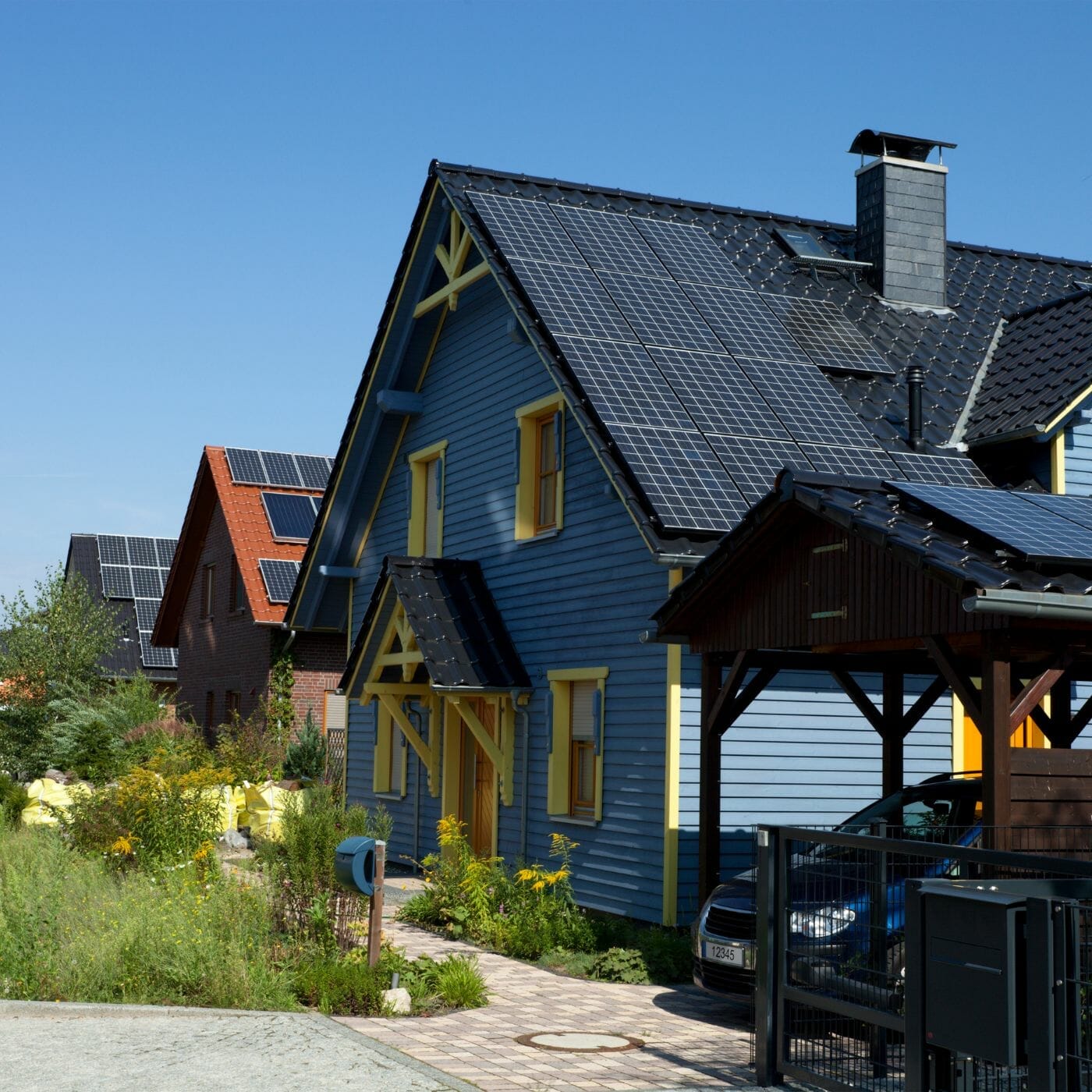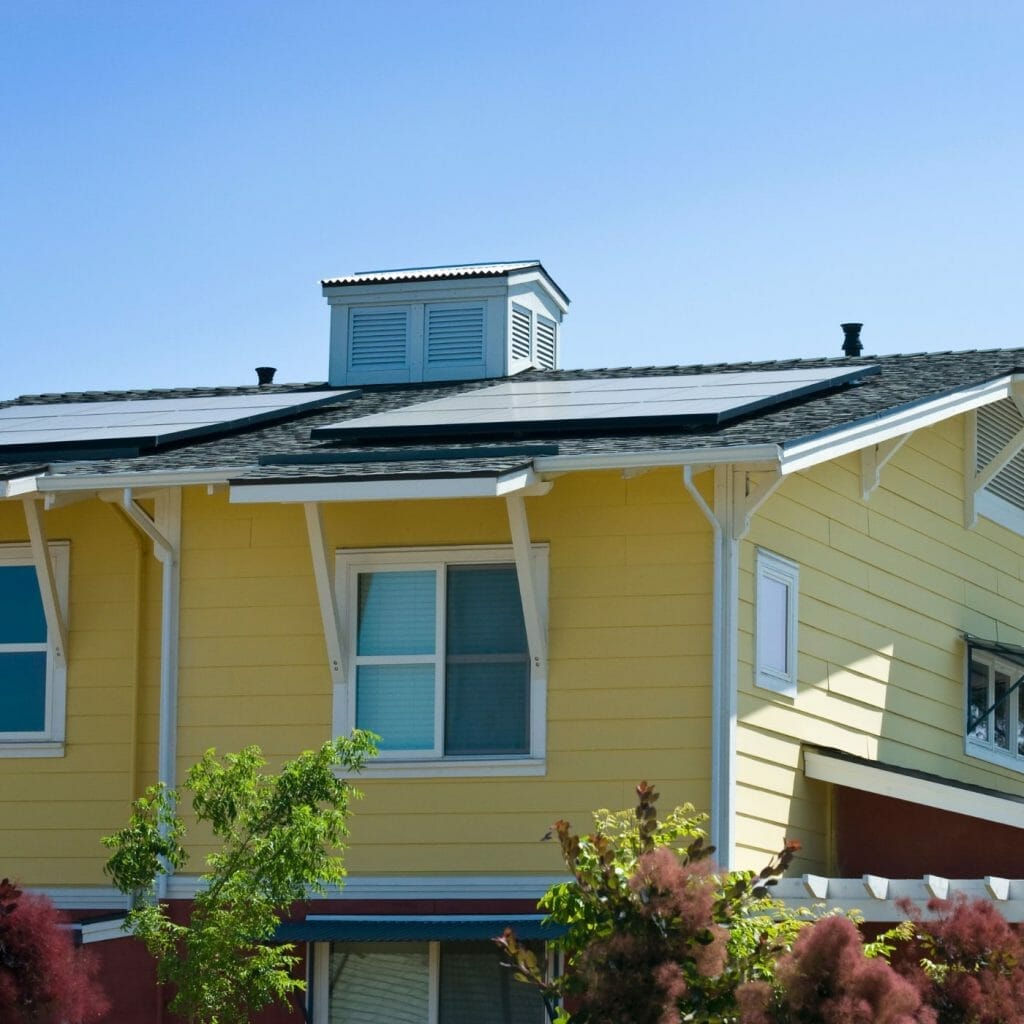Solar Tax Credits Make Housing More Affordable and Sustainable

Solar Tax Credits Make Housing More Affordable and Sustainable
By Justin Drapin, Founder & CEO — ECLIPSE Cottages
For some, fighting climate change while deducting 30% of their home’s energy costs from their federal taxes sounds like an unattainable dream. But this is now possible due to the federal solar tax credit, which President Biden signed into law as part of the Inflation Reduction Act
As the U.S. Office of Energy Efficiency and Renewable Energy explains in its Homeowner’s Guide to the Federal Tax Credit for Solar Photovoltaics, “A tax credit is a dollar-for-dollar reduction in the income tax you would otherwise owe. For example, claiming a $1,000 federal tax credit reduces your federal income taxes due by $1,000.”
The solar tax credit incentivizes homeowners to install solar energy systems by enabling them to claim 30% of their expenses as a credit toward their federal taxes. The tax credit may be used to cover the costs of everything from the solar panels to the equipment and labor needed for installation.
Additionally, many states have passed tax credits to help households transition to solar energy. Some of these work by compensating homeowners for installing solar panels, while others reduce property taxes for homes with solar.
Decreasing taxes is only the first benefit of installing solar energy, but there are many more.
How solar energy & The solar tax credit make housing affordable
Solar energy is also more cost-effective than life on the traditional grid. According to Forbes, “The average household in the U.S. spends about $125 a month on an energy bill. If your system is robust enough to cover your energy usage, you could see savings of up to $1,500 a year.”
The amount a given household would save varies depending on multiple factors, including the amount of sunlight available, the extensiveness of the solar array installed, and the cost of energy from traditional utilities in that particular market. In general, households with solar can cover most of their power needs from their solar panels, while any additional usage comes from the energy company. This means utility bills become dramatically less expensive each month.
Due to these savings, solar panels usually pay for themselves in only six to 10 years. Since solar systems usually last 30 to 35 years, homeowners profit from them for the majority of their lifespan.
Moreover, installing solar boosts the value of your property. According to Zillow, “Nationally, homes with solar-energy systems sold for 4.1% more on average than comparable homes without solar power. For the median-valued home, that translates to an additional $9,274.” Another study has also found that residences with solar sell faster than those without.
How solar power improves sustainability
In addition to making sense financially, installing solar panel systems helps our planet by improving our overall sustainability to create cleaner, greener homes for generations to come. The renewable power they generate can be used for heating water, keeping the lights on, and other things that require electricity — from the refrigerator to the little lights on plugged-in appliances.
For this reason alone, the more people install solar panels in their homes, the less polluted and healthier our planet will become.
Moreover, solar energy systems reduce carbon emissions by decreasing households’ electricity from the traditional grid, often derived from fossil fuels like coal and natural gas.
It’s time to rethink how we live.
Solar panel systems are crucial in the big-picture solution to climate change. Increased reliance on these alternative energy sources will usher in a more sustainable future, helping us reduce our carbon footprint while providing comfort and convenience.
It’s time to rethink homes, communities, and our way of life. Homeowners must stop depending on fossil fuels and tap into renewable resources like solar power. Doing so will make their lives more affordable while protecting the environment for future generations.
— Justin Draplin is the Founder and CEO of ECLIPSE Cottages, a housing technology company specializing in sustainable construction and environmental stewardship.
OMTimes is the premier Spiritually Conscious Magazine. Follow Us On Facebook, Twitter, Instagram, Linkedin, Pinterest, and Youtube
OMTimes Magazine is one of the leading on-line content providers of positivity, wellness and personal empowerment. OMTimes Magazine - Co-Creating a More Conscious Reality





